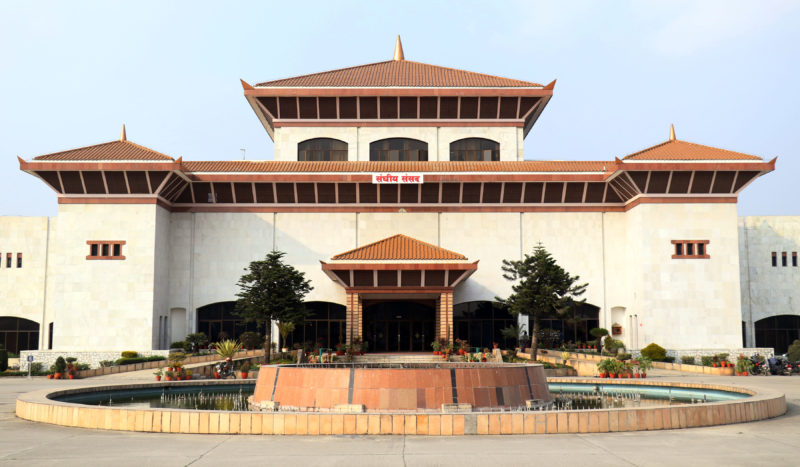Parliament rejects UNDP support
Kathmandu, July 3
Even after signing an implementation agreement, the Federal Parliament has rejected the ‘Parliamentary Support Project’ worth $5.9 million (approximately Rs 650 million) designed, sponsored and executed by the United Nations Development Programme.
The agreement on the five-year project was signed between Manohar Bhattarai on behalf of the Parliament Secretariat and Renaud Meyer from the UNDP on April 23.
The move follows reservations from lawmakers that allowing foreign assistance in the Parliament would result in a clash of interest in the lawmaking process. The lawmakers are in the process of devising laws related to fundamental rights.
House of Representatives Speaker Krishna Bahadur Mahara has already conveyed to Prime Minister KP Sharma Oli that foreign aid was not the Parliament’s business and that the government should deal with such issues.
“The government should deal with issues related to foreign aid. It does not fall under our jurisdiction,” a high-level official quoted Mahara as telling Oli during their recent meeting.
During the meeting, Mahara suggested that the project amount could be utilised to construct a permanent building for the Parliament rather than using it for logistic support for lawmakers and secretariats of the National Assembly, the Parliament and seven provincial assemblies, according to the official.
According to an official of the Parliament Secretariat, the UNDP has been working on logistic support and capacity building since 2008 under this project.
During the meeting between Mahara and Oli, the former said the government would provide resources to the Parliament if needed.
“The finance ministry should deal with foreign aid issues in coordination with the foreign ministry, while Financial General Comptroller Office keeps records. There’s no need for all the ministries to deal with foreign aid,” Mahara said.
According to the agreement, the UNDP project is aimed at supporting provincial assemblies and the Federal Parliament for making them effective, accountable, transparent and inclusive.
“By working to establish a more accountable, transparent, inclusive and effective parliamentary system, it is possible to address a critical aspect of the domestic systems that are required to ensure full development of Nepal,” read the agreement.
The primary objective of the project is to support the establishment of practices and procedures in the Federal Parliament and provincial assemblies of Nepal that reflect international best practices with regard to effectiveness, transparency, accountability and inclusivity.
However, an important secondary benefit to the project is the close relationships that are built with constitutionally-mandated democratic institutions in Nepal and each province and how these can be leveraged to assist the UN and other development partners with their work on behalf of citizens of Nepal, according to the agreement.





